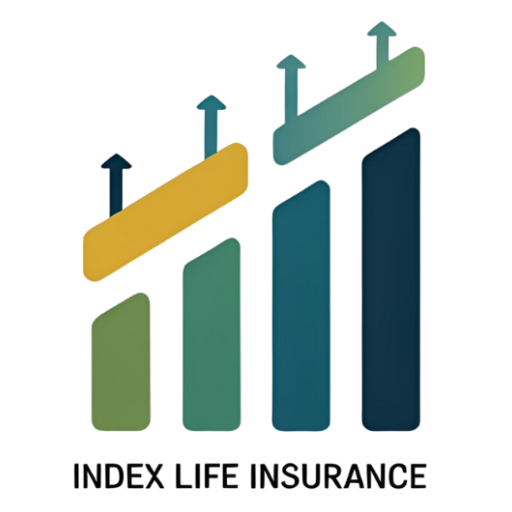In the age of digital transformation, more consumers are turning to the internet to manage financial tasks—including the online purchase of insurance. From simple term life coverage to complex products like Index Universal Life (IUL), online platforms promise fast quotes, instant approvals, and paperless applications. But while the convenience is undeniable, buying insurance online also requires careful evaluation to avoid costly mistakes or missed opportunities for personalization.
This article explores the pros, cons, and best practices of purchasing insurance online, and offers critical insights for navigating more intricate policies like IUL through digital channels.
Why Online Insurance Purchasing Is on the Rise
The demand for quick, remote solutions is reshaping the insurance industry. Here’s why more people are choosing to buy policies online:
- 📱 Convenience: Apply from your phone or laptop 24/7—no office visit required
- ⏱️ Speed: Some term policies offer approval in minutes
- 💬 Transparency: Compare multiple quotes instantly, side by side
- 📄 Paperless Process: E-signatures and digital records reduce hassle
- 💡 Education: Tools and calculators help estimate needs and premiums
This streamlined approach is ideal for digitally savvy consumers—but especially valuable during events like job changes, new home purchases, or pandemics, when in-person meetings are impractical.
What Types of Insurance Can You Buy Online?
Not all insurance is created equal when it comes to digital availability. The following types are commonly available online:
- Term Life Insurance: Quick applications and instant quotes; ideal for young, healthy applicants
- Whole Life Insurance: Some basic plans available online, though often limited in customization
- Index Universal Life (IUL): Typically initiated online, but still requires advisor guidance and medical underwriting
- Health and Dental Insurance: Fully digital process via exchanges and private websites
- Auto and Home Insurance: Widely accessible with robust online comparison tools
More complex financial planning tools like IUL often require hybrid models—initial quote and application online, followed by phone or video consultations.
How IUL Policies Work in the Online Space
Buying an Index Universal Life policy online can offer a smoother process—but not necessarily a faster one. Here’s how it works:
- Pre-qualification: Enter basic health and financial details to receive preliminary illustrations
- Advisor Consultation: Licensed agents often follow up to guide funding strategies and rider selection
- Underwriting: Full medical exams may still be required, with scheduling done online
- E-signatures and Delivery: Final policy documents are issued and signed electronically
While you can start an IUL purchase online, expert support remains critical for policy customization and compliance with IRS contribution limits to avoid Modified Endowment Contract (MEC) status.
Benefits of Buying Insurance Online
Going digital offers more than just speed. Other advantages include:
- 🔍 Better visibility: Side-by-side quote comparisons increase confidence in decision-making
- 🧾 Easy access to documentation: Download policy copies anytime
- 📊 Interactive calculators: Estimate coverage based on income, debt, and family needs
- 📝 Streamlined updates: Make beneficiary changes or add riders through online dashboards
Risks and Drawbacks of Online Insurance Purchasing
Despite its appeal, online insurance shopping isn’t risk-free. Disadvantages include:
- ⚠️ Lack of personal guidance: No human interaction may lead to choosing inappropriate coverage
- ⚠️ Oversimplified policy designs: Pre-built packages may not suit unique financial goals
- ⚠️ Underinsurance: Automated quotes might recommend minimum coverage based solely on age or income
- ⚠️ Missed tax planning opportunities: Especially in permanent policies like IUL, where strategy matters
These limitations are most pronounced when purchasing policies designed for long-term use or cash value growth.
How to Protect Yourself When Buying Insurance Online
To make the most of digital tools while avoiding pitfalls, follow these best practices:
- ✅ Verify licensing: Make sure the platform or agency is licensed in your state
- ✅ Check insurer ratings: Use A.M. Best, Moody’s, or Fitch to confirm financial strength
- ✅ Read the policy documents: Don’t rely solely on summaries—review exclusions and riders
- ✅ Get a second opinion: Even online, many advisors offer no-obligation consultations
- ✅ Ask about living benefits: Ensure you’re aware of riders that might be beneficial (e.g., chronic illness, waiver of premium)
Online vs. Offline: Which Is Better?
It depends on the complexity of the policy and your comfort level. Here’s a quick comparison:
| Factor | Online Purchase | Traditional/Advisor-Led |
|---|---|---|
| Speed | Fast—minutes to days | Slower—days to weeks |
| Customization | Limited | High (especially for IUL) |
| Cost Comparison | Easy with quote tools | May require advisor input |
| Support | Minimal or chatbot | Expert advice |
| Ideal For | Simple term or health policies | Strategic or investment-driven plans |
The Smart Way to Buy Insurance Online
The online purchase of insurance is here to stay—and it offers tremendous value when done right. But especially for permanent life insurance like IUL, where cash value, loan strategies, and tax planning intersect, digital convenience should be paired with professional advice.
Start your journey online. Educate yourself. Compare quotes. But before you click “Buy,” make sure you understand the long-term implications. Insurance is more than a product—it’s a plan. And the best plans combine modern tools with human expertise.

